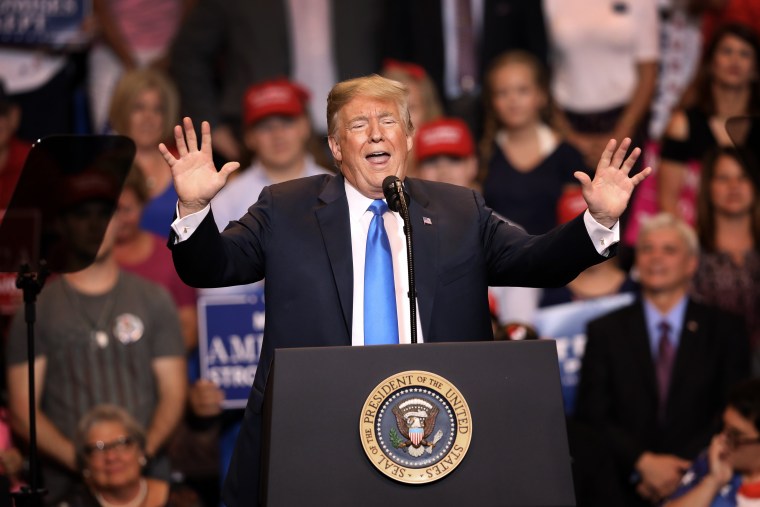There's little Donald Trump loves more than taking credit for positive developments. If something good happens, the president wants you to know he's responsible for it -- even if he isn't, even if his boasts don't make any sense.
But there's a flip-side to this dynamic: as eager as he is to take credit for good news, Trump is equally desperate to avoid blame when things don't go his way. Note, for example, the ways in which the president has denied any responsibility for the deaths of American troops who were killed in missions he approved.
It applies to electoral politics, too. With the midterm elections three weeks away, Trump realizes that Republicans are expected to struggle, especially in U.S. House races, and he's already taking steps to distance himself from culpability.
President Trump said Tuesday that it's not his fault if Republicans lose control of the House in this year's midterms, weeks after he told supporters to "pretend I'm on the ballot" in November.Trump made the comments in a wide-ranging interview with the Associated Press."I don't believe anybody has ever had this kind of impact," Trump told the AP, defending his efforts to rally support for candidates across the country.
When an Associated Press reporter specifically asked if he might "bear some responsibility" if the GOP loses its House majority, the president responded, "No, I think I'm helping people."
It's far too late for this pitch. Trump's already invested too much energy into telling the public the midterms are a referendum on his presidency.
Indeed, he's abandoned the pretense of subtlety. At a campaign rally in Missouri last month, Trump told supporters, "Get out in 2018, because you're voting for me in 2018. You're voting for me. You're voting for me."
Two weeks later, the president told a different audience, "I'm not on the ticket, but I am on the ticket because this is also a referendum about me."
The point of the message was obvious -- Trump hopes his die-hard supporters turn out for Republican candidates, even if he's not literally on the ballot -- but it comes with a risk. The president has effectively taken ownership of the cycle, explicitly making the elections a "referendum" on his presidency to date.
Indeed, Trump has compounded the risk by raising expectations, repeatedly bragging about the prospect of a "red wave."
If Republicans fare well, he'll no doubt take credit. If they don't, Trump's preemptive efforts to avoid blame won't work.
